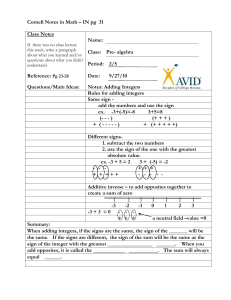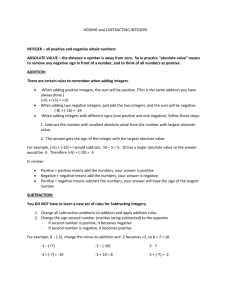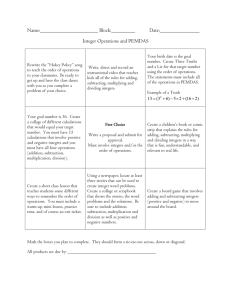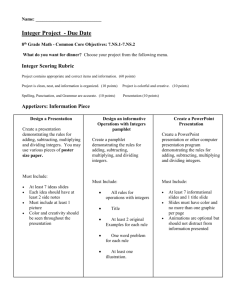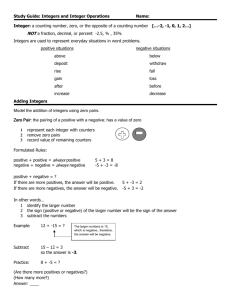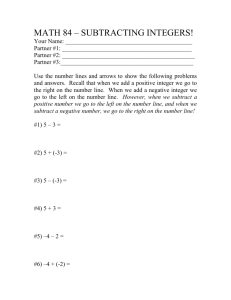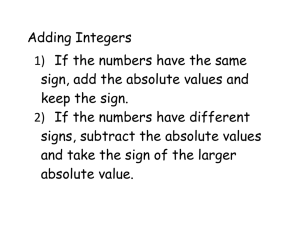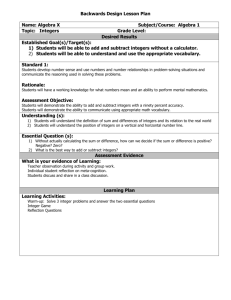Integer Algorithms for Adding, Subtracting, Multiplying, and Dividing
advertisement
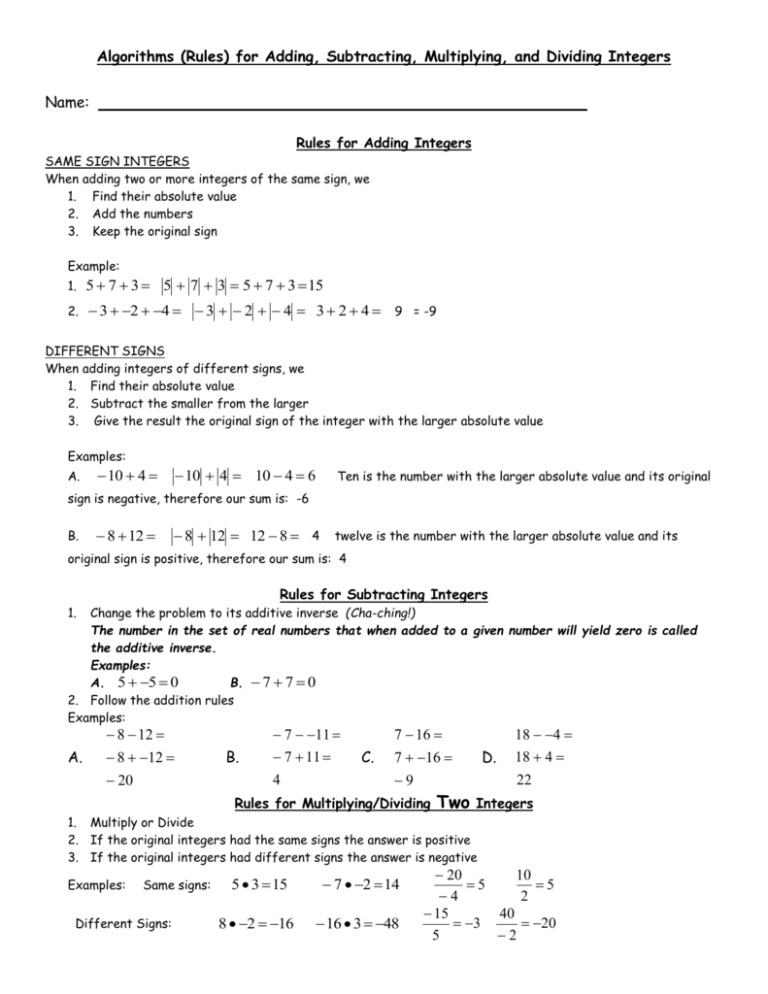
Algorithms (Rules) for Adding, Subtracting, Multiplying, and Dividing Integers Name: Rules for Adding Integers SAME SIGN INTEGERS When adding two or more integers of the same sign, we 1. Find their absolute value 2. Add the numbers 3. Keep the original sign Example: 1. 5 7 3 5 7 3 5 7 3 15 2. 3 2 4 3 2 4 3 2 4 9 = -9 DIFFERENT SIGNS When adding integers of different signs, we 1. Find their absolute value 2. Subtract the smaller from the larger 3. Give the result the original sign of the integer with the larger absolute value Examples: A. 10 4 10 4 6 10 4 Ten is the number with the larger absolute value and its original sign is negative, therefore our sum is: -6 B. 8 12 8 12 12 8 4 twelve is the number with the larger absolute value and its original sign is positive, therefore our sum is: 4 Rules for Subtracting Integers 1. Change the problem to its additive inverse (Cha-ching!) The number in the set of real numbers that when added to a given number will yield zero is called the additive inverse. Examples: A. 5 5 0 B. 7 7 0 2. Follow the addition rules Examples: 8 12 A. 8 12 20 7 16 7 11 B. 7 11 4 C. D. 7 16 9 Rules for Multiplying/Dividing Two Integers 1. Multiply or Divide 2. If the original integers had the same signs the answer is positive 3. If the original integers had different signs the answer is negative Examples: Same signs: Different Signs: 5 3 15 7 2 14 8 2 16 16 3 48 18 4 18 4 22 20 10 5 5 4 2 15 40 3 20 5 2 Summary Page Addition: Same Signs: Add Different Signs: Subtract Keep the sign of the integer with the larger absolute value Subtraction: Change the subtraction sign to an addition sign Change the number you were subtracting to its opposite Follow the addition rules o Same Signs: Add o Different Signs: Subtract o Keep the sign of the integer with the larger absolute value Multiplication or Division: For any two numbers Multiply or Divide Same Signs: Positive Answer Different Signs: Negative Answer
